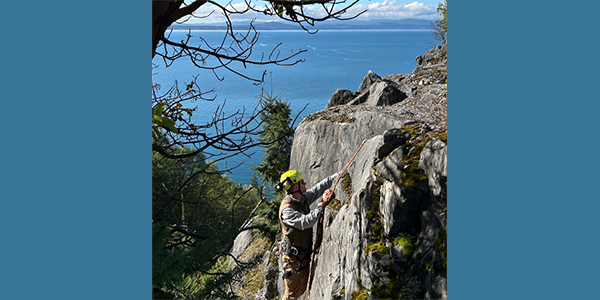||| FROM SUE BAUER |||
I appreciated reading about county council candidates’ views on energy in various local publications. My thanks to the organizations who posed the questions. In the October 21st issue of The Islands’ Sounder, a candidate question from OPALCO asked about their views on hydropower. Not one candidate mentioned the issue of breaching of the dams on the lower Snake River.
Not all hydropower dams are equal in their efficiency in terms of providing electric power for each dollar spent to build or maintain them or in terms of damage they inflict to the natural environment for kilowatt hour produced. For decades now the Lower Snake River dams (“LSRDs”) have been the target of federally-ordered Environmental Impact Studies and many scientific community recommendations to breach them because of their deadly effect on salmon species and in fish generally due to the elevated water temperatures they create. These four dams alone create in the ‘mainstem’/the main trunk of the of the Snake and Columbia Rivers up to a 12.2 (water temperature) degree increase with no way to sufficiently cool it down.
The four lower Snake River dams are only a portion of the complex of reservoirs which comprise the “Federal Columbia River Power System” but these four dams have an outsized effect on the increased river temperatures in the system. Salmon and steelhead intolerance of high water temperatures is well-documented as is the inefficacy of cold water dumping, the current strategy used to try to cool it all down. In just one letter to regional governors and to members of the US Congress last October, fifty-five scientists concluded that breaching the four Snake River dams is “the only action available that can substantially cool mainstem water temperatures on a long-term basis.” Many scientific groups have weighed in on the side of breaching these dams. The failure of marine ecosystems to thrive has ill effects on upland ecologies as well.
So, while I understand & support the real pressure produced on our energy cooperative to wean ourselves from fossil fuels through federal acts like CETA and (I hope) local regulations to come, I’d like to see honesty and clarity in addressing the entirety of the problem. As a community, we can’t talk about our county’s use of hydropower without including discussions of its very obvious problems. And we can’t talk about the problems until we assign actual values to natural ecosystems’ losses that occur both up and downstream.
In the end, the important flip side of all of this is how to fit our collective lifestyles into what electric energy we decide we can most thoughtfully & reliably produce or procure.
I’d very much like to hear us big-brained humans talk about cleaning up “clean” hydro in OPALCO’s present portfolio while at the same time or even as a precursor discuss the
broader topic of curbing our county’s appetite for electric energy in our homes, businesses, government buildings and even in transportation perhaps by way of a discussion of priorities for grid energy use.
**If you are reading theOrcasonian for free, thank your fellow islanders. If you would like to support theOrcasonian CLICK HERE to set your modestly-priced, voluntary subscription. Otherwise, no worries; we’re happy to share with you.**









Thank you for this LTE, Sue Bauer. You speak for me here as well.